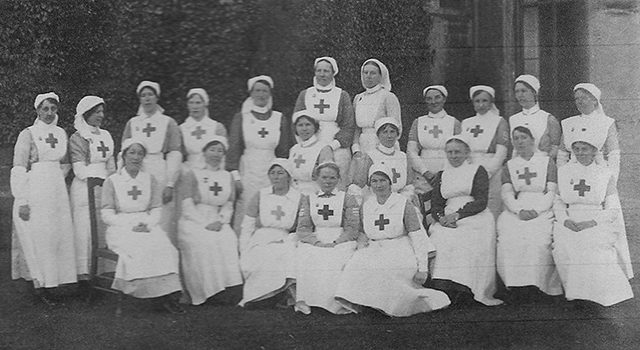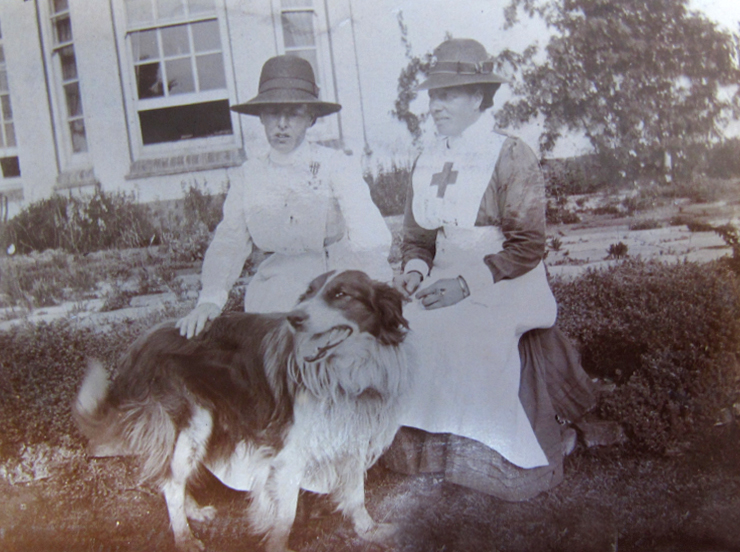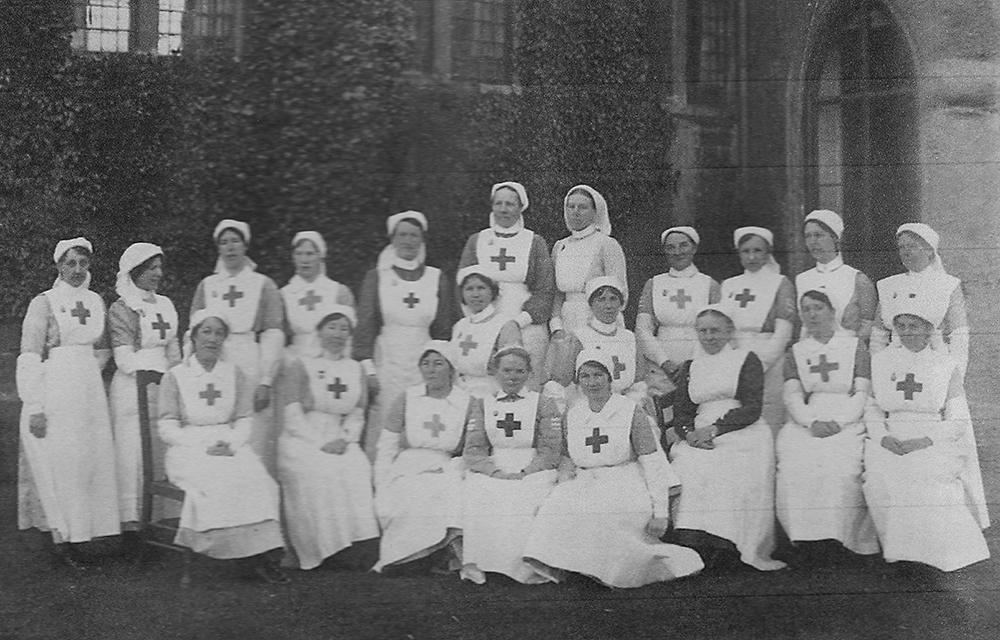Articles

No Comments
By Voices
On 28, Feb 2017 | No Comments | In Gender | By Voices
The Volunteering Women of Worcestershire
Alice Edwards, University of Worcester
When it was announced that Britain would be going to war in 1914, the lives of those on the home front changed. Communities looked to women of middle and upper class to organise charitable events, support the Red Cross, the National Egg Collection, the National Relief Fund or one of the other 18,000 charities set up during the conflict.
One charitable collection organised in Bromyard by Mrs Honwood and Miss Norris was the ‘Sand Bag appeal’, as they explained: ‘It is most important that all the sand-bags should be made to a regulation size’ (Bromyard News and Record June 24th 1915). Another event included hat-trimming competitions, which were put on to entertain wounded soldiers whilst raising funds for the soldiers. School children held events and made items such as scarves, gloves, and shirts during school time to send to those on front line. The Cookley school logbook reports on the 31st August 1914 that: ‘Garments for the use of soldiers will be made by the older girls. These requirements, due to the war will involve some modifications of the syllabus of work in sewing’.
Worcestershire women of a reputable social status were expected to maintain their position in the community by their war efforts. The National Egg collection required those in rural communities, with access to farms and livestock, to collect eggs for wounded soldiers and sailors in hospitals. Many individuals approached this task of collecting and donating eggs in a somewhat competitive manner, with weekly reports on the egg collection found in the local news. In the village of Chaddesley Corbett Miss Agnes Meredith, the local egg collector, reported a collection of ‘four hundred and thirty-nine eggs for February’ in the Kidderminster Shuttle (March 11th 1916). Furthermore, the following month, Miss Meredith informed readers, the community had collected ‘1475 eggs during the month’ (May 6th 1916), going on to explain: ‘This is very good, but it would be better still if we all tried’. The competitive nature of the egg collection both acted as a distraction from the harsh reality of war, as well as bringing together local communities and different generations.

The Misses Gibbons (courtesy of Mary Arden)
The particular roles women played within war funds during the war were associated with their femininity. Such ‘work’ was seen as the correct thing to do and the status of being a ‘volunteer’ was deemed socially acceptable for upper and middle class women. This is most evident in The Red Cross, where the majority of Voluntary Aid Detachment (VAD) nurses were of these particular classes. The commandants of these hospitals were generally from the wealthy land-owning families, for example the Misses Gibbons, who were Chief Nursing Sister and Commandant at Hartlebury Castle from June 1915. Soldiers often sent the commandant Christmas cards and letters signed ‘from the soldiers (the boys)’ as a thank you for all the help they received.

Hartlebury Hospital Nurses (courtesy of Mary Arden)
However, not all women were only motivated by patriotic sentiments when they participated in charitable events within their local communities, something that was recognised by wounded soldiers. One case of this in relation to Bromyard, was reported in the Deanery Magazine (August 1915) where it was noted: ‘We regret to say that there are a few girls and young women who bring Bromyard an unpleasing name’. The wounded soldiers in the local hospital Frome Bank apparently referred to these women as ‘a nuisance’ and pleaded these ‘misguided foolish girls to desist this wanton behaviour at once’.
During the First World War women within Worcestershire were engaged in many different types of work supporting the war effort through war charities and some were indeed motivated by patriotism. However on further inspection of the archival evidence within rural Worcestershire suggests more varied motivations.



Submit a Comment